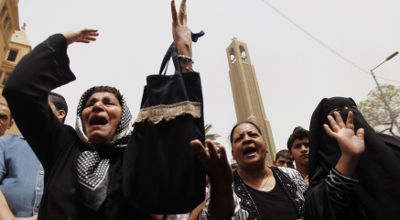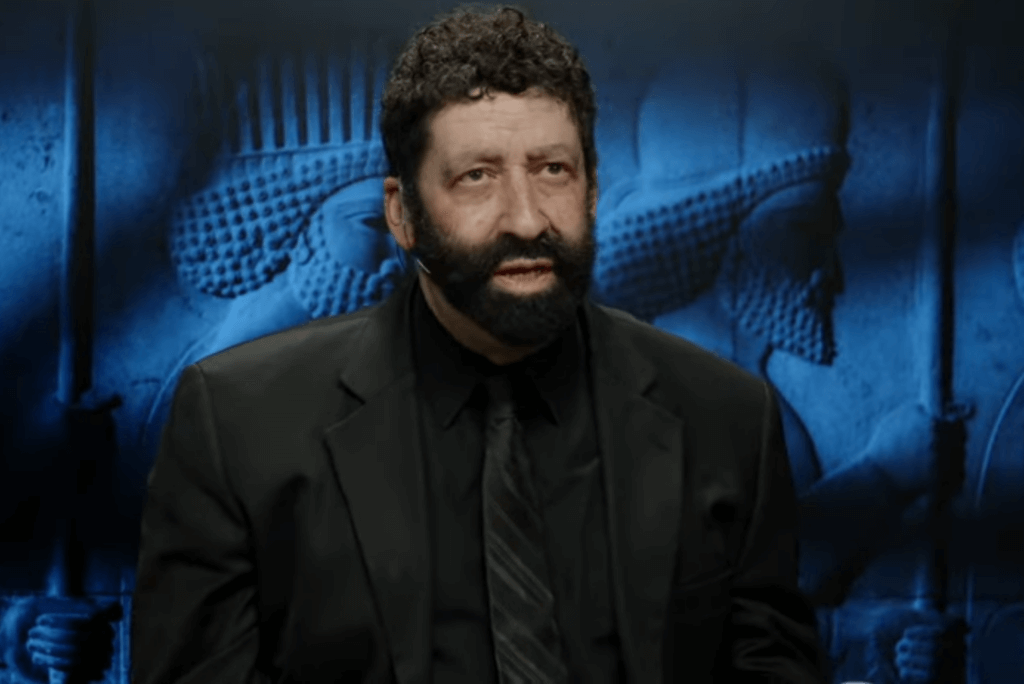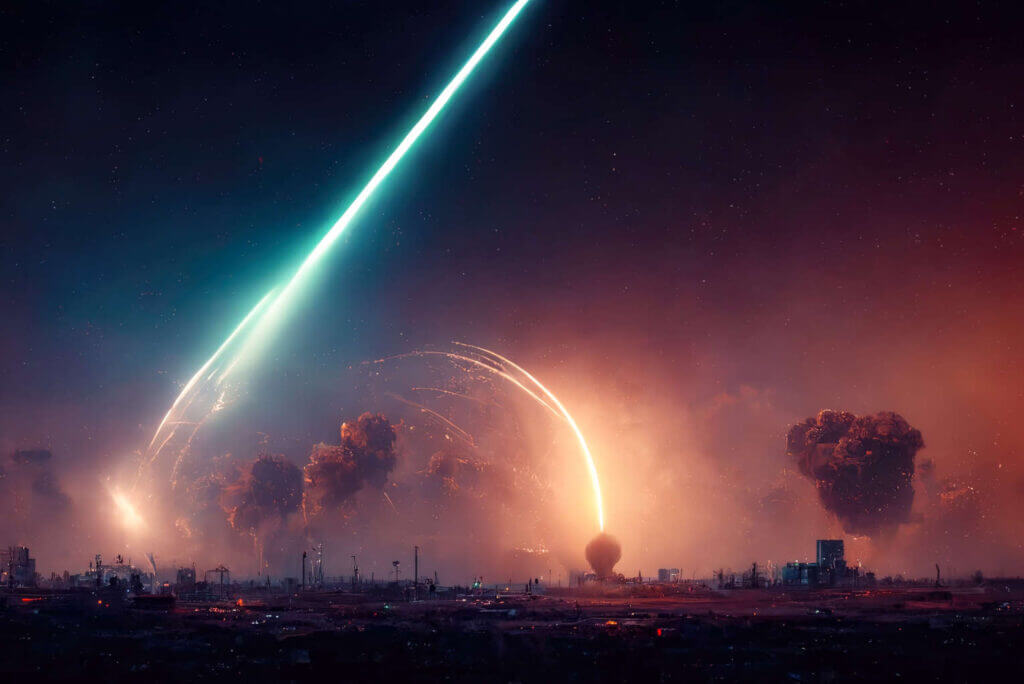In downtown Cairo in mid-March, the multicolored pharaoh-motif tablecloths and dish towels were missing from a fabric store once known for such items.
The owner of the textile factory that produced them closed down and left Egypt soon after the country’s 2011 revolution. Assad Attiya, a clerk who has worked at the store for 13 years, said the former factory owner, like himself, is Christian.
“The owner is afraid to come back. It is harder here now and we want to leave,” explained Attiya, 48, from behind an almost barren counter he said once had been “lined with beautiful linens.”
By some estimates, tens of thousands of Christians have left post-revolution Egypt. Like the former textile maker, they have left due to concerns over rising Muslim conservatism and a general instability they say is emboldening attacks against them.
Perhaps the most dramatic example of sectarian tension yet occurred Sunday in central Cairo, where a crowd attacked Christian mourners after they emerged from a funeral in Egypt’s main Coptic Christian cathedral. The funeral was for four men killed in a Cairo gunfight Friday, in which a Muslim man also was killed. Some of the mourners, joined by sympathetic Muslims, filed out of St. Mark’s Cathedral shouting exhortations against Egyptian President Mohammed Morsi and his largely Islamic government.
The crowd responded to the demonstrators with rocks and gasoline bombs. Police eventually moved in, but numerous and independent news agencies reported police appeared to take the side of crowd, firing tear-gas canisters into the St. Mark’s courtyard and taking no action to stop the attacks on the Christians and their church.
Morsi called Coptic Pope Tawadros II to pledge an investigation and protection for all Egyptians.
“It is now clear that the state needs to take that responsibility far more seriously,” responded Bishop Angaelos, general bishop of the Coptic Orthodox Church in the United Kingdom, in a statement released after Sunday’s violence. Since the 2011 popular uprising that deposed former President Hosni Mubarak, Angaelos said, “we have seen escalating and increasing attacks on Christians, Christian communities, churches and now the Patriarchate during this past period of expected improvement, and so questions must be asked. What are the authorities waiting for? More bloodshed, violence, hostility, alienation, marginalisation, division, or just more anarchy?”
Many Christians are not waiting for the answers.
Attiya, the fabric store clerk, said he had applied the last two years for U.S. residency—a green card—through a lottery system that Washington sponsors, but wasn’t selected. A few months ago, he requested a tourist visa to visit his brother, who works in an amusement park in New York, but was denied.
“All Egyptians, by nature, are kind (but) circumstances are now making everything bad, so I am afraid of you and you are afraid of me. And because of the fear within you, you become bad,” Attiya said.
“We all hoped for the best, but no one knows now what will happen,” he said, reflecting his disappointment over how the revolution, which united thousands of Muslims and Christians alike, has transpired.
Egyptians, including thousands of Muslims, now opposed to the Muslim Brotherhood government demonstrate and strike almost daily. The country’s military and other security forces have been at odds with the new government, and at times have withdrawn completely from different cities around the country.
The resulting state of instability, decaying economy and rise in crime has scared many Egyptians into leaving, or trying to—not least of all Egyptian Christians who say they are easy targets when trouble erupts, and there is no system in place to protect them.
“They feel if there is an issue, there is vigilante violence,” said Douglas May, a U.S. Catholic priest based in Egypt where he has lived for 18 years.
He said that although there were restrictions on minorities under Mubarak, such as bans on building churches and unauthorized gatherings, Christians felt safer because there was at least a sense the country was under control.
“They feel they are very vulnerable,” May said. “They are surrounded by the (Muslim) majority (and) they no longer feel comfortable.” He equated the Christian situation to those of American blacks before the civil rights movement, “because there is no system that protects them.”
In Egypt’s regions south of Cairo, for example, kidnappings of Christians are increasingly common. The Associated Press reports more than 150 kidnappings have been reported in the southern province of Minya since the revolution.
The kidnappers mostly are criminals motivated by ransom, not religion. But they roam freely, according to minority advocates, because they have little fear they will be held accountable for crimes against the Christian minority.
“The state has made Christian blood cheap,” Father Estephanos of the Coptic Orthodox Church in Samalout, about 80 miles south of Cairo, told the AP.
Reports issued by human rights agencies, as well as the U.S. State Department, conclude government security forces have failed to prevent or stop violence involving Christians in several instances since the revolution. They make special note of an October 9, 2011 peaceful demonstration made up of mostly Christians in front of the country’s national television building, Maspero, which resulted in as many as 28 deaths.
See an error in this article?
To contact us or to submit an article






















